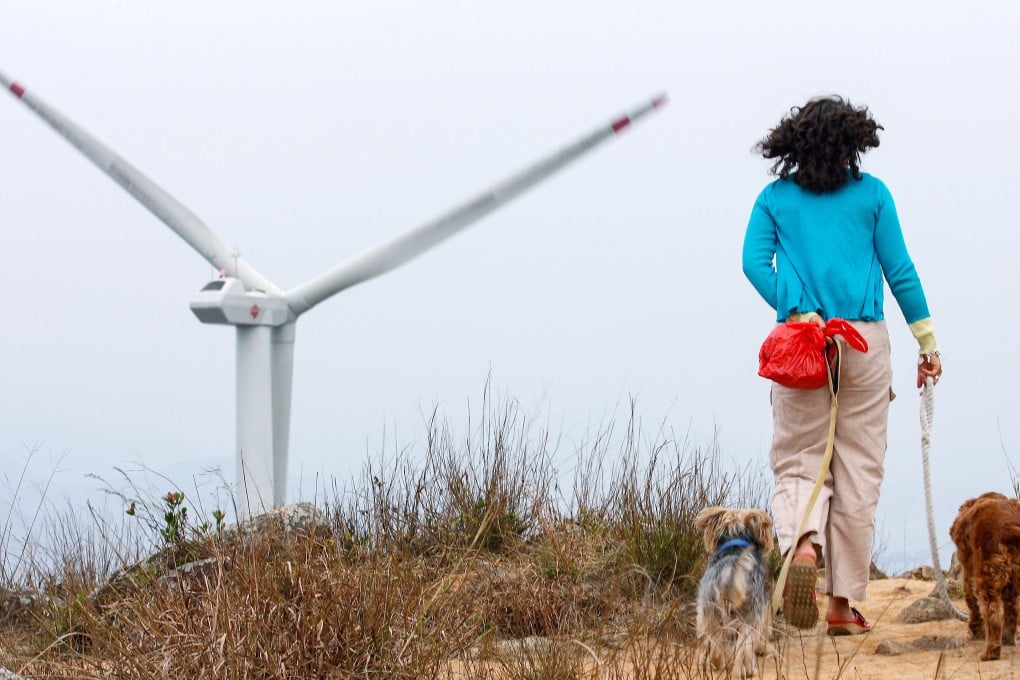About 90% of Hongkongers in favour of prioritising local renewable energy, survey finds
Survey by Greenpeace Hong Kong and Baptist University shows most respondents oppose importing electricity from mainland China

Most Hongkongers support prioritising the development of local renewable energy, a survey by a leading environmental group and a city university has found, with more than half of respondents expressing reservations about importing electricity from mainland China.
“We hope we can bring the voices of experts and the general public to the table and tell the government what people expect the climate policy to be and what should be included,” Greenpeace campaigner Tom Ng Hon-lam said.
From June to October, the research team analysed climate action plans from 15 cities and countries, including Shenzhen, Tokyo and Singapore, and interviewed 20 experts from both overseas and local universities, the energy sector and non-government organisations.
They also engaged 196 residents in an online discussion and polls, and surveyed 1,019 people via phone calls to ask them what options should be considered in the government’s review, in a bid to strengthen the city’s climate plan.

According to the findings, about 90 per cent of those polled supported that Hong Kong should devote more resources to solar energy and generate power from waste, slightly more than those who were in favour of biofuels and offshore wind energy.
